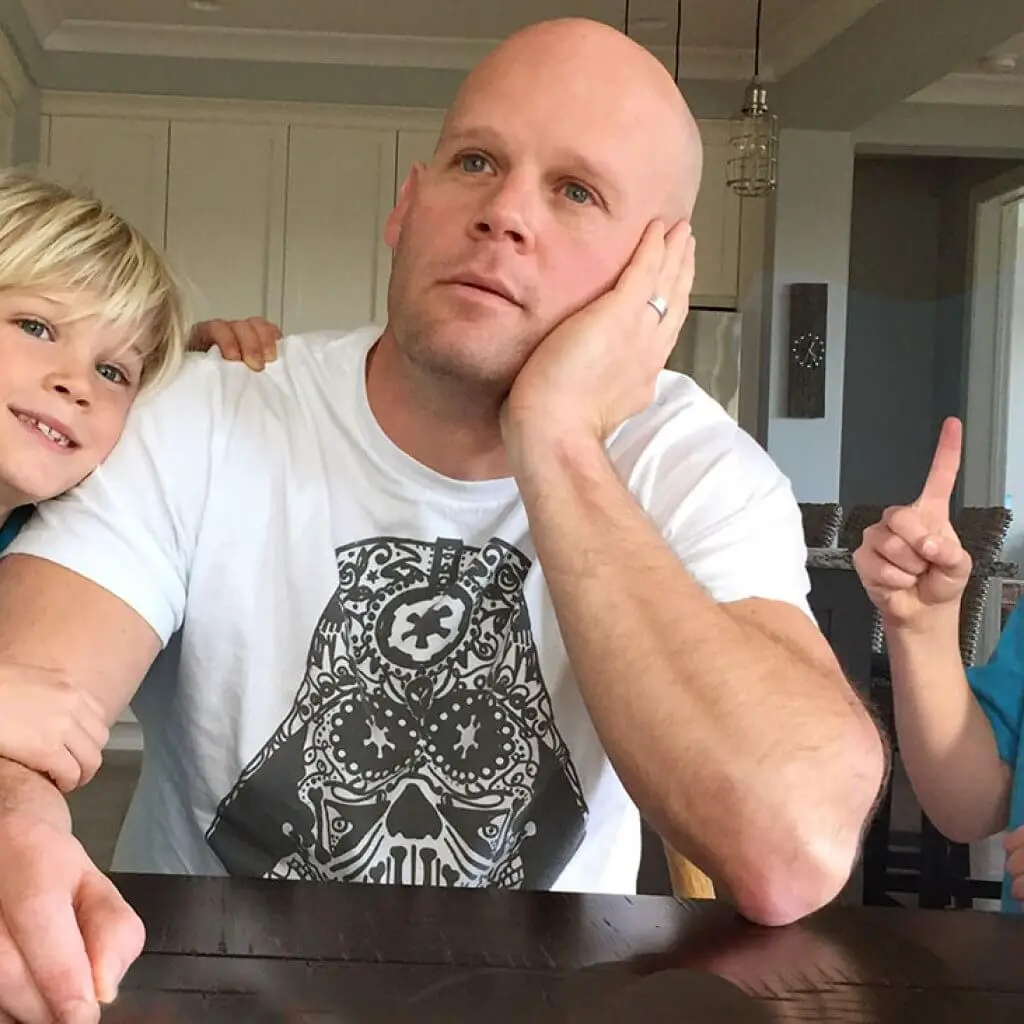Turn your Inner-Critic into your Inner-Nurturer

No matter how high your level of confidence is, you’re bound to beat yourself up over something at least once in your life (though, probably more than once). Even when we know we’re giving it our all, there’s going to be times when we simply feel we’re doing it wrong. You can apply this to anything: your job, your friendships, schoolwork, romantic relationships, and yes—even parenting.
If you’ve ever looked in the mirror and asked yourself, “Am I good parent? Am I doing the right thing for my child? Am I giving her the best life possible? Am I even cut out for this? Am I going about it all wrong?”, you should at least take some solace in knowing that you’re not the first person to question their parenting abilities (and you certainly want be the last.
It’s Normal to Question your Parenting Approach
One thing you should know about questioning your parenting approach, is that it’s a totally normal thing to do. In fact, it’s actually a good thing to do. Honestly, if you feel like you’re doing every single thing right all the time, you’re probably not giving yourself the self-examination needed to help you strive to become the best you can be.
Self-examination is a necessary part of life—a necessary part of growing as an individual and a human being. This is especially true in the case of being a parent. Even if you are a great parent (you most definitely are, don’t worry too hard about it), you need to understand that questioning your approach means you’re probably a better parent than you think (usually, we’re all better parents than we think).
Caring is a Sign of Good Parenting
You have to keep in mind that examining your ability to parent means that you actually care about being a parent. It means that you aren’t just simply going through the motions, it means that you want to be there for your child.
One of the first signs of a good parent is a parent who cares. That’s something you need to remember every day. When it gets tough and you feel like you have no idea what you’re doing (we all feel that way), and when you feel so sure that you’re just a terrible parent, that means that you’re exactly the kind of parent that your child needs you to be.
Think about this: what child wouldn’t want a parent who cares about her wellbeing? A child needs love and care and concern—she needs someone in her life who makes her feel that she’s worth it. You know who that person is? It’s you!
Quite frankly, at some point you need to wonder if you’re a good parent. It shows compassion, and compassion is key to good parenting.
You’re your Own Worst Critic
If you don’t know this by now, it’s probably time that someone told you: no one is ever going to be as hard on you as you are. This applies to any aspect of life, really. When you’re in the process of critical self-examination, it’s you who’s wondering if you’re doing it right—racking your brain for answers while you torture yourself with self-deprecation, self-loathing, and weighing yourself down with feelings of hopelessness and despair. No one else is wondering it; you are.
For one thing, your child probably isn’t coming up to you and asking, “Do you really think that you’re a good parent? Have you ever thought about the idea that you’re absolutely terrible at this, and that every day you’re slowly turning me into the worst person I can possibly be—just turning me into a completely awful and despicable human being? Have you ever thought that your efforts are utterly useless, and that you’re a failure, and that you should be ashamed of yourself?”
You’re the one who thinks these things. It’s not your child. Maybe that all sounds a little harsh (and if that’s really what you’re thinking you might want to tone it down a bit), but you should at least know that your kid probably isn’t picking apart every little move you make and deeply contemplating exactly how she’s affected by your actions and approach.
Everyone is judging themselves more than they’re being judged by the people around them. No matter what challenges and adversities you face, you have to remember that. You’re your own worst critic, and as far as parenting is concerned, self-examination is always a positive, but tearing yourself apart is only going to make things worse.
When Self-Examination and Doubt Become a Detriment
Again, self-examination is normal and healthy. But, there are definitely healthy and unhealthy ways to react to any answers and conclusions (whether correct or not) that you might come to realize.
While questioning your parenting abilities most definitely shows that you’re doing better than you think, you can’t let yourself be consumed by your doubt—the reason being is that the way you parent is definitely going to be affected if you’re constantly in critic mode.
How can you expect to be the best parent you can be if you’re continually picking apart the way you parent, and you perpetually conclude that you aren’t doing a good job? While it’s a good thing to question whether or not you’re a good parent, you still have to be a parent—that means being there for your child and for your family. Despite any compassion and concern that self-examination shows, you still have to be present in the life of your child.
If your child comes to you because she’s feeling emotionally distraught (which is incredibly confusing for a child, especially when a child experiences such feelings for the first time) and you tell her something along the lines of “You know honey, there’s no reason for you to come to me when you have a problem. I’m absolutely useless to you and because of that there’s no way I can be of any help, you’re on your own,” then your child is going to feel as if she doesn’t even have a parent.
When you let your kid think that you aren’t worth it, not only will she believe you (kids are impressionable), but she’s going to think that she’s not worth the trouble. You may not think about it, but your kid’s perception of her self-worth is actually dependent on your sense of self-worth. When you’re not there for your child because you’ve been thrown into the grips of doubt, and you tell her that because you’re a bad parent that there’s no use in trying to fix anything, you’re telling your child that she has no worth. If you’re kid thinks there’s no worth in you being there for her, she’ll have no way of finding worth in herself.
You have to remember that the way you view your child plays a huge part in the way she views herself. Not only that, but you’re actually playing a part in the way your child views the world. Your sense of futility will be internalized by your child, and she’s going to think that there’s absolutely no reason to try her hardest no matter what it is she’s doing.

Your debilitating melancholy is only going to make your child think that the world is an awful and dreadful place. Yes, life presents us with its fair share of suffering, but life is also a beautiful and wondrous gift. When your kid is young, she’s going to place a lot of value into what you say and how you act, and if you let your child think that the world is totally miserable place, then she’s just going to think that life is full of gut-wrenching sadness and nothing else.
Do you really want your child growing up thinking that all of life is only pain and agony? If you give your child the impression that existence is just a barren wasteland of forlorn fruitlessness (due to an unreasonable amount doubt), then your child will never make any attempts to grow, find herself, or be a compassionate and caring individual.
It’s imperative that you keep in mind that being a good parent means positively helping your child shape her views of the world around her. When you feel that you’re a terrible parent, and you let that feeling control you, you aren’t going to be the kind of parent your child needs you to be—you won’t be the kind of parent who influences your child’s life for the better, and that’s actually your responsibility to do (don’t let that intimidate you, being a positive influence in the life of your child is easier than you think).
When Doubt Leads to Anger and Hostility
Let’s think about this for a second: it may seem kind of odd (or maybe it seems obvious), but when you doubt yourself as a parent, you’re having doubts about your ability to effectively be there for another human being (your kid). That means that you aren’t just upset at yourself, it means that there’s someone in your life who is a source (not the only source, but a source nonetheless) of your despair. That source is your child.
Yes, your negative thinking is the main source of your problem here (not your parenting abilities), but to certain degrees, it’s your child who is bringing you pain. That doesn’t mean that your issue is your child’s fault (it isn’t), but it means that you very well may treat your child as if it is her fault.
If there’s a source to your sadness, that means you have something or someone you can blame. If you’re able to blame something or someone for your sad state of affairs, you now have something or someone to whom you can direct your feelings towards—something or someone that will make you feel justified in your feelings, and in the heat of the moment, that makes you feel like you have the right to be frustrated (seeing as how you feel it isn’t your fault). And what exactly does frustration lead to? It leads to anger.
So now, seeing as you’ve found a source to your hopelessness, you have a source that you can be angry at, and unfortunately in this instance it means you can be angry at your child (you shouldn’t be angry but it’s certainly easy for you to justify—and unjustly so).
It’s totally understandable that you would look at your child and think to yourself, “If it wasn’t for you I wouldn’t be feeling this way. I rue the day you were born, and I hate you.” That doesn’t mean it’s the right thing to think, but it isn’t unreasonable that you would arrive at such a conclusion (no matter how unreasonable the conclusion might actually be).
If you’ve arrived at this conclusion, and you feel justified in hating your child—and expressing your hate towards her—then you’re going to do it. Often times, when we’re angry at someone we want them to know it. We can become so absolutely outraged that we almost feel as if we have some sort of moral responsibility to let that person know how strongly they’ve wronged us (though as far as our current discussion is concerned, your child didn’t do anything wrong at all—she can’t really help the fact that she was born).
At this point, you’ve turned your self-examination into a hatred for your child. It went from self-loathing to loathing your kid. If you begin to act in a hostile manner towards your child just because at first you were angry at yourself after the process of self-examination (when in fact by conducting self-examination you were doing something meaningful), your child’s sense of self-worth will undoubtedly take a turn for the worse.
This isn’t exactly the same as you exhibiting signs of passive sadness, or even telling your kid that all is hopeless and pointless. When you’re angry at your child, she’s going to at least think she has a full understanding of what’s going on. She has no choice but to feel as if something is inherently wrong with her, or that she’s incapable of making any right decisions.
Not only will your child feel as if she can very clearly see that she is a burden to you, but she’ll most likely find you to be frightening. Once your child is afraid of you, it can be very difficult to reverse her feelings of fear and let her know that she can come to you at any time.
Sure, you’re going to get angry with your child at some point in your life—that’s completely normal. But when you consistently blow up at your child due to an anger that’s fueled by bitterness (for her no less), it’s going to be tough for your child to see you as anything else but an absolute monster. Now, your kid thinks you’re a monster, and she also thinks it’s because of some inherent flaw in herself. She might very well think that she’s turned you into a monster—that everything is in fact her fault, and she’ll have no reason to think that you can be any sort of positive presence in her life. You want to be a source of warmth to your child, not a presence that leaves her feeling destroyed and scared.
It may seem intense, but this is exactly where unnecessary self-doubt can lead you. By excessively worrying about whether or not you’re a good parent, you’ve now created a rift between you and your child—one that might last for the rest of your lives.
Just Relax

Okay, hopefully at this point you aren’t absolutely terrified. Just because you reflect upon your parenting skills, it doesn’t guarantee that you’ll completely fracture the relationship between you and your child—ensuring that the two of you remain forever estranged. This is by no means an inevitability, but it certainly is a possibility.
How exactly do you avoid this possibility? All you have to do is relax. Remember, self-examination is a good thing. Again, if you think you might be a bad parent, you’re showing that you care, and a caring parent is a good parent. If you’re in the throes of self-doubt, just take a little breather and remember that your compassion is a sign of strength.
And you know one thing you can do? You can always talk to your child if you feel she isn’t getting the care she deserves (again, if you think she’s deserving of anything, that’s a good sign). It may seem a little weird to ask your kid if she think you’re a good parent, but just think about the kind of gesture you’re making in this instance: your child is going to know without a doubt that you care. That’s all children want—is to be loved and know that someone cares about them.
In the instance of talking to your child about your doubts, you’re giving her the feeling of nurture that’s required for strong emotional health. If you’re constantly criticizing yourself, just go spend time with your child. You may not realize it, but your child is actually someone you can turn to in times of need.
When you’re sitting around just tearing yourself down, try to realize that and use that time to bond with your child instead of wasting all of your energy on hating yourself. You could spend all your time wondering if you’re a good parent, or you could go and be be a parent.
Just keep up the good work. Sometimes you have to you have to reflect upon the quality of your work to know if it’s good work or not, but that’s how you know that you’re on the right track. If there’s something about your parenting approach that you feel you could change, just change it (it’s not the easiest thing in the world, but you can do it). You don’t have to beat yourself up just because there’s something in your parenting approach you feel you could change.
Parenting—like anything else worthwhile in life—is a process. That’s something you shouldn’t forget.







